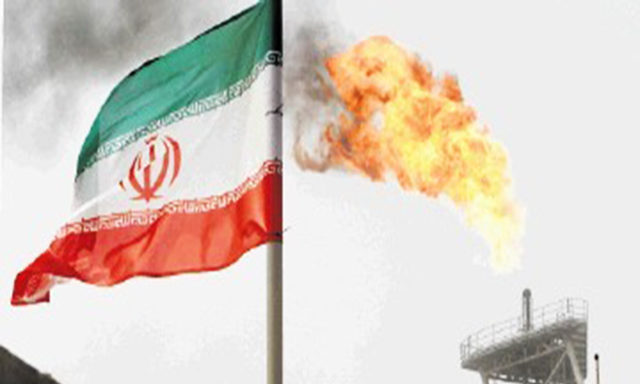
Asian oil buyers taking their pick of supply from Iraq to Mexico amid a global glut are preparing for the pool of potential bargains to expand if Iran boosts exports.
As world leaders seek an accord on Iran’s nuclear program, at least six Asian refiners including India’s Mangalore Refinery and Petrochemicals Ltd. and Japan’s Cosmo Oil Co. are anticipating more supply from the Middle East producer if sanctions against the nation are lifted.
While global producers seek to defend market share as oil prices trade near a six-year low, buyers in Asia are diversifying their crude sources by shipping cargoes from as far as Colombia.
The US and five other global powers are negotiating with Iran to end a decade-long dispute over its nuclear program in return for removing sanctions that have cut its crude exports by more than half.
Iran exports 1 million to 1.1 million barrels of crude a day, down from 2.5 million a day before the measures took effect in mid-2012.
“If sanctions are removed, there’s a big chance that demand for Iranian oil will recover in Asian nations like South Korea, China and Japan,” Hong Sung Ki, a Seoul-based commodities analyst at Samsung Futures Inc., said by phone on March 20. “India is another nation to watch.”
Iran was the second-biggest producer in the Organization of Petroleum Exporting Countries before the sanctions pushed it into fifth place.
The country’s daily output was 2.78 million barrels in February compared with 3.58 million in December 2011, data compiled by Bloomberg show.
A shale boom has boosted US output to the highest level in more than three decades, limiting America’s need for imports and prompting global producers to cut prices in an effort to defend market share.
Asian refiners have benefited from the market glut, diversifying their sources of supply to nations including Russia, Mexico and Canada as oil slumped almost 50 percent in 2014.
Brent futures fell as much as 41 cents, or 0.7%, to $55.51 a barrel on the London-based ICE Futures Europe exchange on Tuesday. The benchmark for more than half the world’s crude is down 48 percent over the past 12 months.
While the sanctions don’t prevent Asian nations from buying Iranian crude, they have limited purchases by some countries. India’s government in January asked its refiners to restrict annual imports from the Persian Gulf nation at the previous year’s level, prompting processors to seek alternative supplies.
Mangalore Refinery, India’s biggest buyer of Iranian crude after Essar Oil Ltd., will seek to boost purchases from the Middle East nation if sanctions are eased or removed, Vijay Joshi, the company’s head of refineries, said by phone.
In Japan, Cosmo Oil is currently negotiating its annual term contract that starts in April with Iran, said a company official who asked not to be identified because of internal policy.
Iranian officials have said they want to add 1 million barrels a day in a few months if the sanctions are suspended.
The country may be able to boost output to pre-sanction levels in six to nine months once the restrictions are removed, according to Mark Keenan, head of commodities research for Asia at Societe Generale SA in Singapore.
Negotiators are working toward a March 31 goal to reach a framework deal.
“If the deal happens, it will definitely help our country,” Indian Oil Minister Dharmendra Pradhan said in an interview last week. “It will help our imports.”
Recommended for you
